PONTIFICAL COUNCIL
FOR JUSTICE AND PEACE
COMPENDIUM OF THE SOCIAL DOCTRINE OF THE CHURCH

LIBRERIA EDITRICE VATICANA United States Conference of Catholic Bishops
Washington, D.C. TO HIS HOLINESS POPE JOHN PAUL II MASTER OF SOCIAL DOCTRINE AND EVANGELICAL WITNESS TO JUSTICE AND PEACE
TABLE OF CONTENTS
INTRODUCTION
AN INTEGRAL AND SOLIDARY HUMANISM CHAPTER ONE
GODS PLAN OF LOVE FOR HUMANITY CHAPTER TWO
THE CHURCHS MISSION AND SOCIAL DOCTRINE CHAPTER THREE
THE HUMAN PERSON AND HUMAN RIGHTS CHAPTER FOUR
PRINCIPLES OF THE CHURCHS SOCIAL DOCTRINE CHAPTER FIVE
THE FAMILY, THE VITAL CELL OF SOCIETY CHAPTER SIX
HUMAN WORK CHAPTER SEVEN
ECONOMIC LIFE CHAPTER EIGHT
THE POLITICAL COMMUNITY CHAPTER NINE
THE INTERNATIONAL COMMUNITY CHAPTER TEN
SAFEGUARDING THE ENVIRONMENT CHAPTER ELEVEN
THE PROMOTION OF PEACE CHAPTER TWELVE
SOCIAL DOCTRINE AND ECCLESIAL ACTION CONCLUSION
FOR A CIVILIZATION OF LOVE

SECRETARIAT OF STATE From the Vatican, 29 June 2004 N. 559.332 His Eminence Cardinal RENATO RAFFAELE MARTINO President of the Pontifical Council for Justice and Peace VATICAN CITY Your Eminence, Throughout the course of her history, and particularly in the last hundred years, the Church has never failed, in the words of Pope Leo XIII, to speak the words that are hers with regard to questions concerning life in society. Continuing to expound and update the rich patrimony of Catholic social doctrine, Pope John Paul II has for his part published three great Encyclicals Laborem Exercens, Sollicitudo Rei Socialis and Centesimus Annus that represent fundamental stages of Catholic thought in this area. For their part, numerous Bishops in every part of the world have contributed in recent times to a deeper understanding of the Churchs social doctrine. Numerous scholars on every continent have done the same.
It was therefore hoped that a compendium of all this material should be compiled, systematically presenting the foundations of Catholic social doctrine. It is commendable that the Pontifical Council for Justice and Peace has taken up this task, devoting intense efforts to this initiative in recent years. I am pleased that the volume Compendium of the Social Doctrine of the Church has been published, sharing with you the joy of offering it to the faithful and to all people of good will, as food for human and spiritual growth, for individuals and communities alike. This work also shows the value of Catholic social doctrine as an instrument of evangelization (cf. Centesimus Annus, 54), because it places the human person and society in relationship with the light of the Gospel. The principles of the Churchs social doctrine, which are based on the natural law, are then seen to be confirmed and strengthened, in the faith of the Church, by the Gospel of Christ.
In this light, men and women are invited above all to discover themselves as transcendent beings, in every dimension of their lives, including those related to social, economic and political contexts. Faith brings to fullness the meaning of the family, which, founded on marriage between one man and one woman, constitutes the first and vital cell of society. It moreover sheds light on the dignity of work, which, as human activity destined to bring human beings to fulfilment, has priority over capital and confirms their rightful claim to share in the fruits that result from work. _______________________________ In the present text we can see the importance of moral values, founded on the natural law written on every human conscience; every human conscience is hence obliged to recognize and respect this law. Humanity today seeks greater justice in dealing with the vast phenomenon of globalization; it has a keen concern for ecology and a correct management of public affairs; it senses the need to safeguard national consciences, without losing sight however of the path of law and the awareness of the unity of the human family. The world of work, profoundly changed by the advances of modern technology, reveals extraordinary levels of quality, but unfortunately it must also acknowledge new forms of instability, exploitation and even slavery within the very societies that are considered affluent.
In different areas of the planet the level of well-being continues to grow, but there is also a dangerous increase in the numbers of those who are becoming poor, and, for various reasons, the gap between less developed and rich countries is widening. The free market, an economic process with positive aspects, is nonetheless showing its limitations. On the other hand, the preferential love for the poor represents a fundamental choice for the Church, and she proposes it to all people of good will. It is thus apparent that the Church cannot fail to make her voice heard concerning the new things ( res novae) typical of the modern age, because it belongs to her to invite all people to do all they can to bring about an authentic civilization oriented ever more towards integral human development in solidarity. Contemporary cultural and social issues involve above all the lay faithful, who are called, as the Second Vatican Council reminds us, to deal with temporal affairs and order them according to Gods will (cf. Lumen Gentium, 31).
We can therefore easily understand the fundamental importance of the formation of the laity, so that the holiness of their lives and the strength of their witness will contribute to human progress. This document intends to help them in this daily mission. Moreover, it is interesting to note how the many elements brought together here are shared by other Churches and Ecclesial Communities, as well as by other Religions. The text has been presented in such a way as to be useful not only from within (ab intra), that is among Catholics, but also from outside (ab extra). In fact, those who share the same Baptism with us, as well as the followers of other Religions and all people of good will, can find herein fruitful occasions for reflection and a common motivation for the integral development of every person and the whole person. The Holy Father, while hoping that the present document will help humanity in its active quest for the common good, invokes Gods blessings on those who will take the time to reflect on the teachings of this publication.
In expressing my own personal good wishes for the success of this endeavour, I congratulate Your Eminence and your collaborators at the Pontifical Council of Justice and Peace for the important work carried out, and with sentiments of respect I remain Yours sincerely in Christ, Cardinal ANGELO SODANO Secretary of State
PRESENTATION
I am pleased to present the Compendium of the Social Doctrine of the Church, which, according to the request received from the Holy Father, has been drawn up in order to give a concise but complete overview of the Churchs social teaching. Transforming social realities with the power of the Gospel, to which witness is borne by women and men faithful to Jesus Christ, has always been a challenge and it remains so today at the beginning of the third millennium of the Christian era. The proclamation of Jesus Christ, the Good News of salvation, love, justice and peace, is not readily received in todays world, devastated as it is by wars, poverty and injustices. For this very reason the men and women of our day have greater need than ever of the Gospel: of the faith that saves, of the hope that enlightens, of the charity that loves. The Church is an expert in humanity, and anticipating with trust and with active involvement she continues to look towards the new heavens and the new earth ( 2 Pet 3:13), which she indicates to every person, in order to help people to live their lives in the dimension of authentic meaning. Gloria Dei vivens homo : the human person who fully lives his or her dignity gives glory to God, who has given this dignity to men and women.
Next page
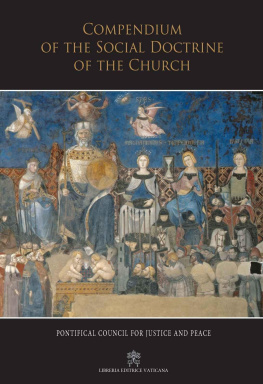


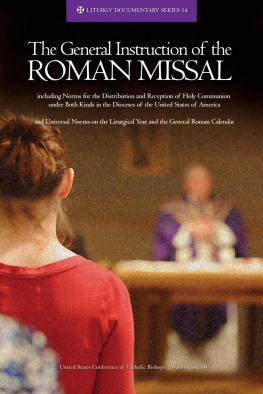
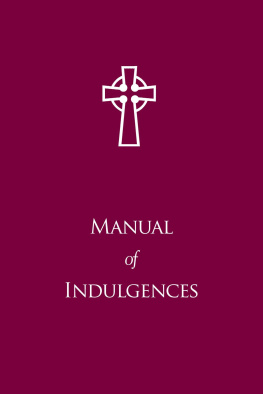
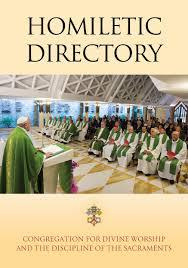

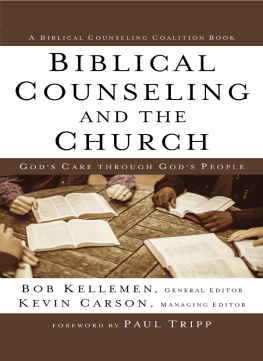





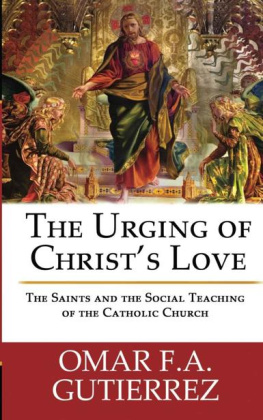
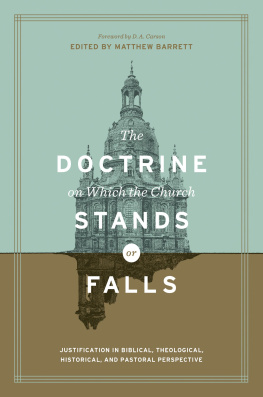
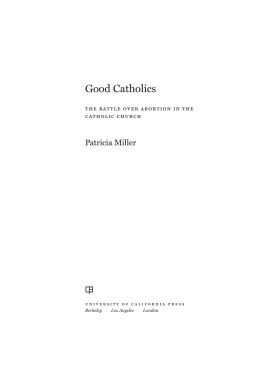

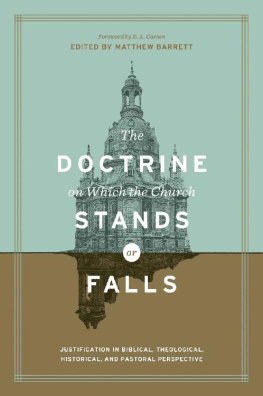
 LIBRERIA EDITRICE VATICANA United States Conference of Catholic Bishops
LIBRERIA EDITRICE VATICANA United States Conference of Catholic Bishops SECRETARIAT OF STATE From the Vatican, 29 June 2004 N. 559.332 His Eminence Cardinal RENATO RAFFAELE MARTINO President of the Pontifical Council for Justice and Peace VATICAN CITY Your Eminence, Throughout the course of her history, and particularly in the last hundred years, the Church has never failed, in the words of Pope Leo XIII, to speak the words that are hers with regard to questions concerning life in society. Continuing to expound and update the rich patrimony of Catholic social doctrine, Pope John Paul II has for his part published three great Encyclicals Laborem Exercens, Sollicitudo Rei Socialis and Centesimus Annus that represent fundamental stages of Catholic thought in this area. For their part, numerous Bishops in every part of the world have contributed in recent times to a deeper understanding of the Churchs social doctrine. Numerous scholars on every continent have done the same.
SECRETARIAT OF STATE From the Vatican, 29 June 2004 N. 559.332 His Eminence Cardinal RENATO RAFFAELE MARTINO President of the Pontifical Council for Justice and Peace VATICAN CITY Your Eminence, Throughout the course of her history, and particularly in the last hundred years, the Church has never failed, in the words of Pope Leo XIII, to speak the words that are hers with regard to questions concerning life in society. Continuing to expound and update the rich patrimony of Catholic social doctrine, Pope John Paul II has for his part published three great Encyclicals Laborem Exercens, Sollicitudo Rei Socialis and Centesimus Annus that represent fundamental stages of Catholic thought in this area. For their part, numerous Bishops in every part of the world have contributed in recent times to a deeper understanding of the Churchs social doctrine. Numerous scholars on every continent have done the same.